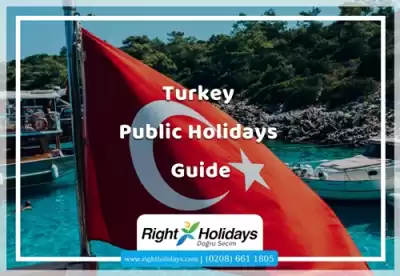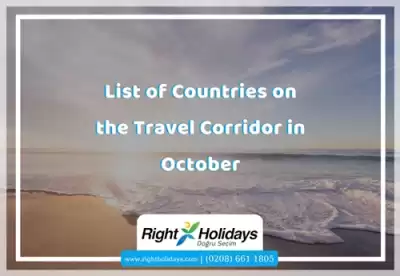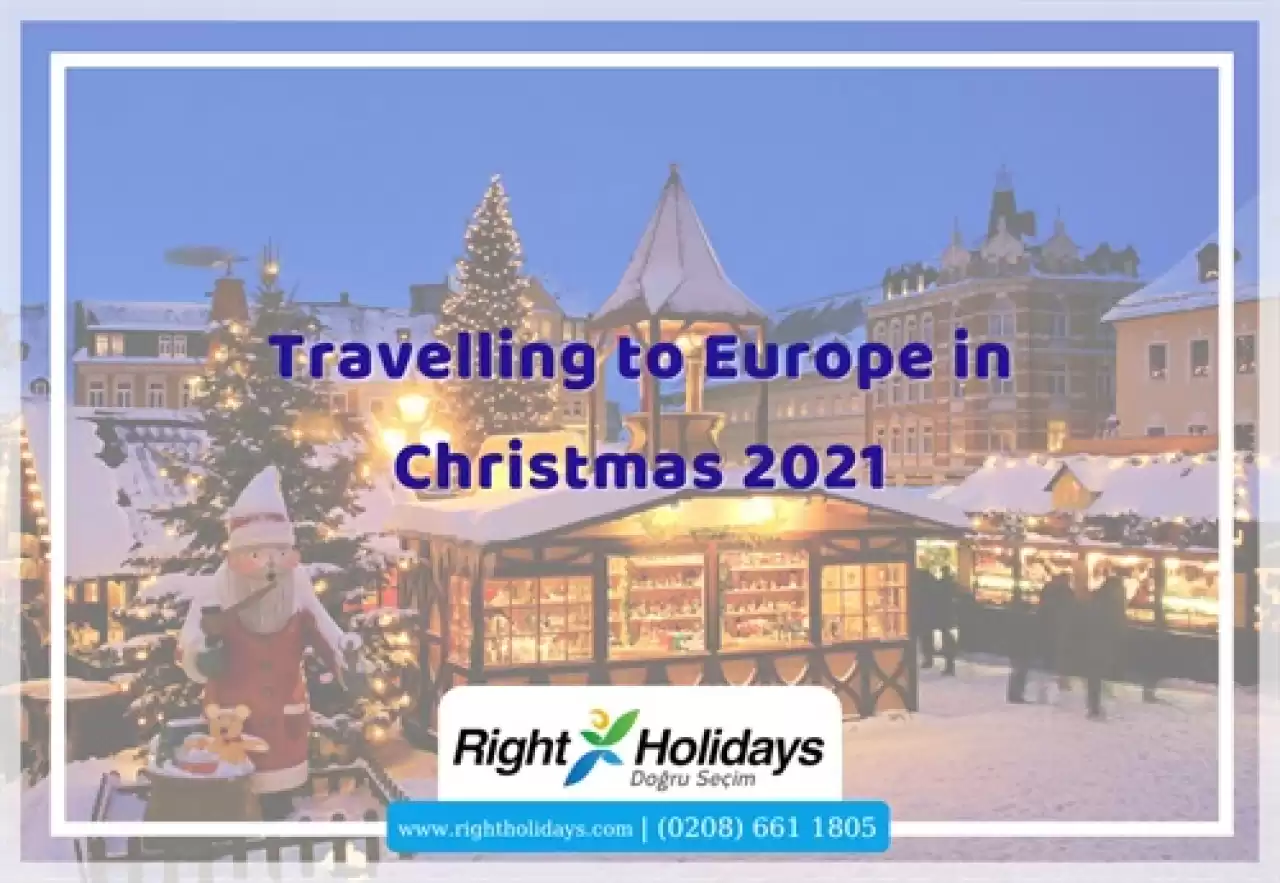Travelling to Europe in Christmas
Travelling to Europe in Christmas
As winter begins in Europe and less time is being spent outdoors, Covid-19 cases are on the rise, and the new variant Omicron is threatening holiday plans. So how will it affect your Christmas holidays if you’re headed to a European country?
If you’re traveling from South Africa, you must check if the country you want to visit has banned entry.
No matter which country you’re coming back from, you’ll need to take a PCR test within 48 hours of arrival and isolate until you get the result.
Covid-19 Rules and Restrictions in European Countries
Austria
Austria is in full lockdown, so tourists are banned from entering into the country until at least the 13th of December. People are only allowed to leave their homes for mandatory reasons such as buying groceries, going to the doctor, or exercising.
Belgium
Belgium operates a travel traffic light system of “green“, “orange“, “red“ and “very high-risk“ zones. Fully vaccinated arrivals from outside of Europe need to take a PCR test and quarantine in Belgium until presented with a negative result. Face masks are mandatory in restaurants and bars in Belgium, but those who can show a negative Covid test in addition to proof of full vaccination are exempt from the rules.
People entering bars, restaurants, cafes and other indoor places must show their COVID-19 safe status through the Belgian Covid Safe Ticket (CST) system.
Bulgaria
Bulgaria is operating a traffic light system with green, orange, and red zones. Travelers from the UK are allowed entry provided they can show a negative PCR test, a valid digital vaccination certificate, or a recovery certificate. Wearing a mask is not mandatory in open public places; however, you must wear a face-covering when using public transport, visiting pharmacies and medical establishments. You must also wear a mask when visiting museums, cultural monuments, zoos, or aquariums.
Bosnia and Herzegovina
Bosnia and Herzegovina is open to tourists who can present a negative PCR result, issued no less than 48 hours before travel, or proof of vaccination. Grocery stores, pharmacies, restaurants, and cafes are open, along with most other businesses. It’s mandatory to wear masks in outdoor and indoor public spaces and on public transport.
Croatia
Tourists are able to enter Croatia if they can show proof of vaccination, a Covid recovery document from their doctor or a negative Covid test. Masks are mandatory in all indoor public spaces in Croatia and in outdoor places where social distancing guidelines cannot be followed.
Cyprus
Cyprus also operates a colour-coded system, and requirements for travellers depend on their location. Travellers from the UK can show their proof of vaccination and a negative Covid test for a restriction-free holiday. Cyprus also uses a 'SafePass' to access public spaces, where face masks must be worn.
Czech Republic
Czech Republic separates countries into five categories depending on Covid transmission risk. All Travellers from the UK must show either a negative COVID test, proof of vaccination, or proof of past infection. Masks are mandatory in public indoor spaces and social distancing is encouraged.
Czech Republic banned Christmas markets and public drinking amidst a rise in Covid cases. Bars, restaurants, nightclubs, discotheques and casinos have to close at 10 p.m.
Denmark
Travellers can visit Denmark without isolation if they can show they recovered from Covid, are fully vaccinated, or can show a negative PCR or an antigen test. At indoor restaurants, cafés and bars you must present a COVID Certificate or similar. Face masks are only required at the airport.
Estonia
Unvaccinated travellers need to self-isolate for 10 days and to exit self-isolation, you must show a negative PCR test or take a test on arrival in Estonia. You’ll then need a second negative test no earlier than 6 days after the initial test will allow you to exit self-isolation. Fully vaccinated travellers or those who can prove they had Covid in the past year don’t have to self-isolate.
Wearing a face mask is required when in indoor public places and public transport.
Finland
Finland is open to fully vaccinated travellers and those who have recovered from COVID-19. The COVID-19 passport can be required in the following settings: restaurants, nightclubs, and public events, gyms, and other indoor facilities. Finnish authorities recommend using face masks in public transport and to maintain social distancing.
France
The UK is on France’s amber list so France is accepting fully vaccinated UK travellers, who no longer need to present evidence of a negative test result before travel. However, they must complete a 'sworn statement' saying they have no symptoms. France is operating a 'green pass' for entry into public spaces.
It’s expected that police could enforce the new mask rules, with penalties of €135 for people not wearing a mask in designated areas. Mask-wearing is compulsory in all enclosed public spaces and some outdoor places.
Germany
Germany is only accepting fully vaccinated arrivals from the UK. Germany is operating a 'green pass' for entry into public spaces. As the UK is designated a “high incidence area” by Germany, visitors from the UK can only enter if fully vaccinated. Bavaria has cancelled all of its Christmas markets due to the surge in Covid infections. It’s possible that bars could shut down in Germany.
Greece
Greece requires either a negative PCR test, EU Digital Certificate, or proof of vaccination from tourists. Since 22nd of November, people who cannot show proof of full vaccination are barred from most indoor spaces, including cinemas, theatres, museums and gyms - even if they test negative for Covid-19. British tourists can use their NHS Covid Pass to enter the indoor spaces. A negative Covid test only allows entry to churches.
Netherlands
The Netherlands currently classifies the UK as a ‘very high-risk country’. They accept vaccinated travellers from the UK who can present a negative Covid test. The Netherlands entered into a partial three-week lockdown on the 26th of November. So bars, restaurants and non-essential shops are closed from 17:00 to 05:00 until at least the second week of December.
Norway
All fully vaccinated travellers from the UK are welcome in Norway. They do not need to provide evidence of a negative test on arrival, but they need to complete an online registration form prior to arrival.
Italy
Italy will accept the UK’s proof of Covid-19 recovery and vaccination record as the equivalent of the country’s green pass. From the 6th of December, only people with proof of vaccination or of having recovered from COVID-19 can eat at indoor restaurants, go to the movies or attend sporting events.
Those who have not been vaccinated must show evidence of a negative PCR test taken within the past 48 hours. After entering Italy, they must self-isolate for five days.
Spain
Only fully-vaccinated UK travellers are allowed into Spain as of 1st of December. Some regional health authorities like the Basque Country in northern Spain have made Covid-19 passports essential to enter bars and restaurants.
Switzerland
Travellers from the UK need to present a negative COVID-19 test and quarantine for ten days on arrival, even when fully vaccinated.
Sweden
UK travellers can enter Sweden if they have proof of recovery from Covid, have been fully vaccinated or can present a negative PCR test. Most of the bars, restaurants and entertainment venues remain open with social distancing, face masks and extra hygiene measures in force.
Poland
Currently, UK arrivals into Poland will have to quarantine for 14 days on arrival. From 1st of December to the 17th, restaurants and cinemas are only allowed to operate at half capacity.
Portugal
Portugal announced that from the 1st of December, fully vaccinated travellers will have to present a negative on arrival. Also, it is mandatory to prove full vaccination status to enter restaurants, tourist venues and accommodation.
Romania
Travellers from the UK are allowed entry to Romania, provided they can show a negative PCR test, a valid digital vaccination certificate or a recovery certificate. You must wear a mask in indoor public spaces, as well as while in crowded outdoor gatherings.
Albania
All foreign nationals must show a negative PCR test and proof of vaccination. Measures to contain COVID-19 remain in effect, including night-time curfews from 11pm to 6am, and mandatory face masks indoors and on public transport.
Featured


10 Things Avid Travel Planners Do
Details
Best UNESCO World Heritage Sites in Turkey
Details
Turkey Public Holidays Guide to Avoid Peak Travel Times
Details
List of Countries on the Travel Corridor in October
Details
Top Destinations in Cyprus for a Late Summer Trip
Details
Top 10 Outdoor Activities in Turkey
Details



